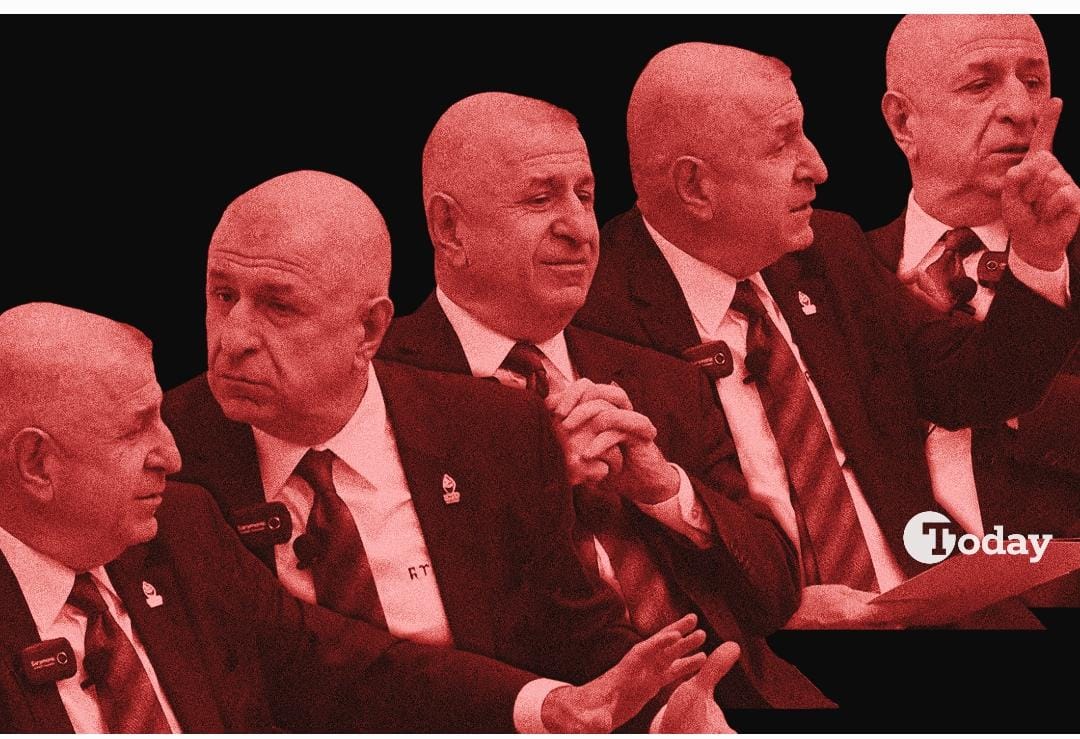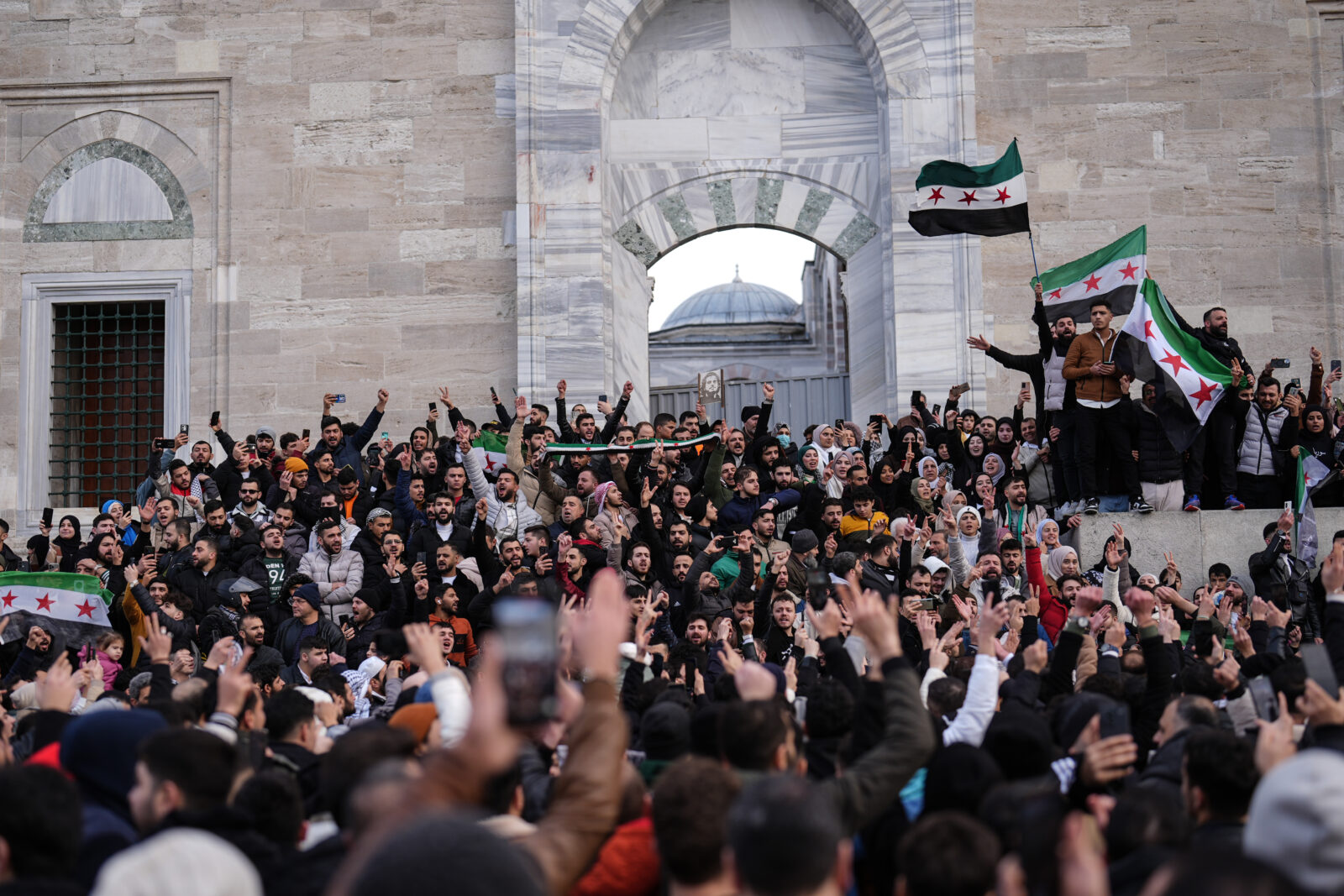
The fall of Bashar al-Assad’s regime in Syria, a scenario increasingly discussed in recent geopolitical analyses, poses a pivotal question for Türkiye's far-right political movements, particularly the Zafer Party (Victory Party). The party, under the leadership of Umit Ozdag, has built its political identity and support base almost entirely on the anti-immigrant sentiment stemming from the presence and past flow of millions of Syrian refugees in Türkiye.
Zafer Party controls no seats in parliament, nor any major political foothold other than Ozdag's one man show and ability to make headlines with outlandish claims - especially when it came to refugees in the country. With recent developments indicating a possible large-scale return of Syrians to their homeland, the future for the party holds ambiguity.
Since its inception, the Zafer Party has capitalized on societal frustration over the status and stay of Syrian refugees in Türkiye. With economic challenges mounting, many citizens viewed the refugees as a strain on public resources. Ozdag’s rhetoric—frequently polarizing and controversial—has provoked and resonated with segments of the electorate looking for definitive action on the refugee issue.
However, these days, within daily life and conversations to the ones on social media, the potential resolution of the Syrian refugee crisis—whether through voluntary repatriation or enforced measures—is a topic of conversation, which many think could strip the Zafer Party of its primary political focus of the narrative. The possibility raises a series of critical issues, such as whether the party can survive and reinvent itself and remain politically relevant in a rapidly changing landscape.
Ozdag’s initial reaction to reports of Syrians leaving Türkiye was dismissive. He labeled the circulating footage of Syrians returning as “misleading,” asserting that “no one is leaving” and accusing the government of deceiving the public.
His statements reflect a deep skepticism about the durability of these repatriations and suggest a broader narrative of distrust toward the ruling administration’s handling of the refugee issue.
Furthermore, Ozdag has raised concerns about a new wave of migration, fueled by potential instability in post-Assad Syria. Pointing to recent remarks from Hayat Tahrir al-Sham (HTS) leadership, which, according to Ozdag, advocates strict Sharia-based governance, he cautioned that such moves could escalate sectarian violence further. Yet how HTS will govern has thus far indicated a more tolerant, state-building approach.
“The last wave brought Sunni Arabs,” he noted. “This time, we could face a second wave, consisting of Alawi Arabs.”
Far-right parties in Europe have demonstrated a certain political adaptability when their primary grievances lose urgency. For example, once immigration inflows subsided, many may pivot to other issues, such as anti-EU sentiment & Euroscepticism, economic nationalism, or culture wars focusing on LGBT issues and identity politics. Turkish politics is a bit more complicated.
Unlike European far-right movements, Türkiye’s Zafer Party lacks a robust ideological framework beyond anti-immigration. Its small voter base, primarily united by frustration over the refugee issue, might not seamlessly transition to other far-right narratives such as economic nationalism or cultural conservatism. Türkiye and its citizens have demonstrated a far greater capacity and tolerance at hosting some 5 million individuals during the height of the refugee crisis - when including non-Syrians as well.

The Zafer Party’s political future hinges on its ability to adapt to a post-Assad landscape and broaden its appeal. Former Turkish Foreign Minister and Zafer Party Deputy Chairman Sukru Sina Gurel, in an interview with Türkiye Today, argued that Türkiye’s migration challenges extend far beyond Syrian refugees. “The migration issue is not confined to Syrians, nor will it end with their departure,” Gurel stated, emphasizing systemic corruption as the root cause. He outlined a vision focused on rehabilitating state institutions to restore Türkiye’s nation-state identity, advocating for a more state-driven economy with the revival of institutions like the State Planning Organization (DPT).
Gurel also highlighted the need for educational reforms, such as reintroducing modernized versions of the village institutes, to address broader socio-economic challenges. This stance suggests a potential pivot for the Zafer Party toward a new agenda, which could include addressing migration from Afghanistan, Iran and Africa-originated groups, as well as rallying on claimed institutional and social decay, to remain politically relevant.
Zafer Party’s limited ideological breadth and its primary identity as a single-issue movement leave little room for maneuver beyond reframing the immigration debate. Shifting the focus to issues like strained resources or integration challenges or redirecting its rhetoric toward other migrant groups—such as Afghans, Iranians, Africans, or those fleeing conflict zones like Libya—may struggle to garner the same level of attention and resonance it has enjoyed in recent years. Another avenue might involve positioning itself as a watchdog against future migration crises, emphasizing its role in safeguarding national security.
The ruling AK Party (Justice and Development Party) and opposition have already begun addressing public concerns over immigration, potentially encroaching on the Zafer Party’s voter base. The AK Party, in particular, has been leveraging strategic narratives to project a sense of control and success in managing the issue after all, consolidating its base and leaving little room for challengers like Ozdag to claim new ground.
Zafer Party had carved a small space for itself in the Turkish political spectrum on anti-immigrant rhetoric, now this might be its Achilles' heel. The potential resolution of the Syrian refugee issue could leave the party scrambling for relevance in a political landscape where its primary narrative no longer resonates.
As Syria’s future unfolds, so too will the fate of the Zafer Party. Whether it can adapt or finds itself politically obsolete remains to be seen.